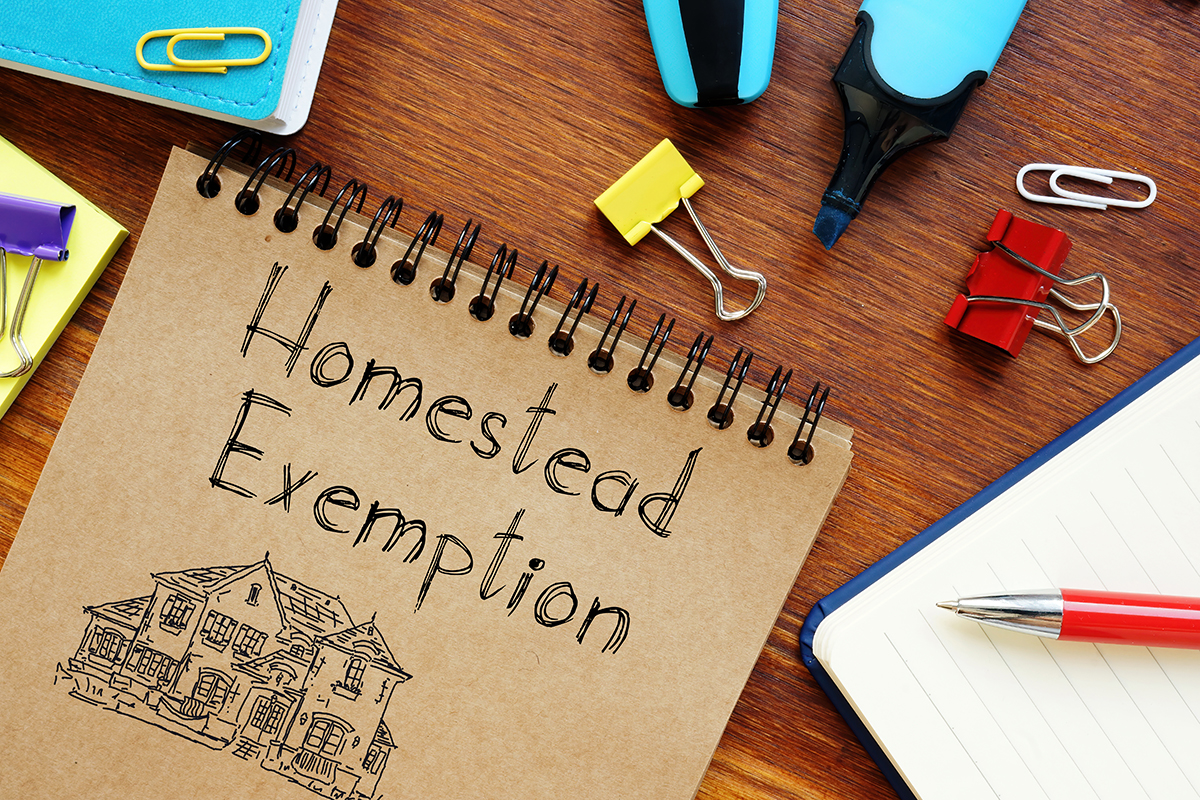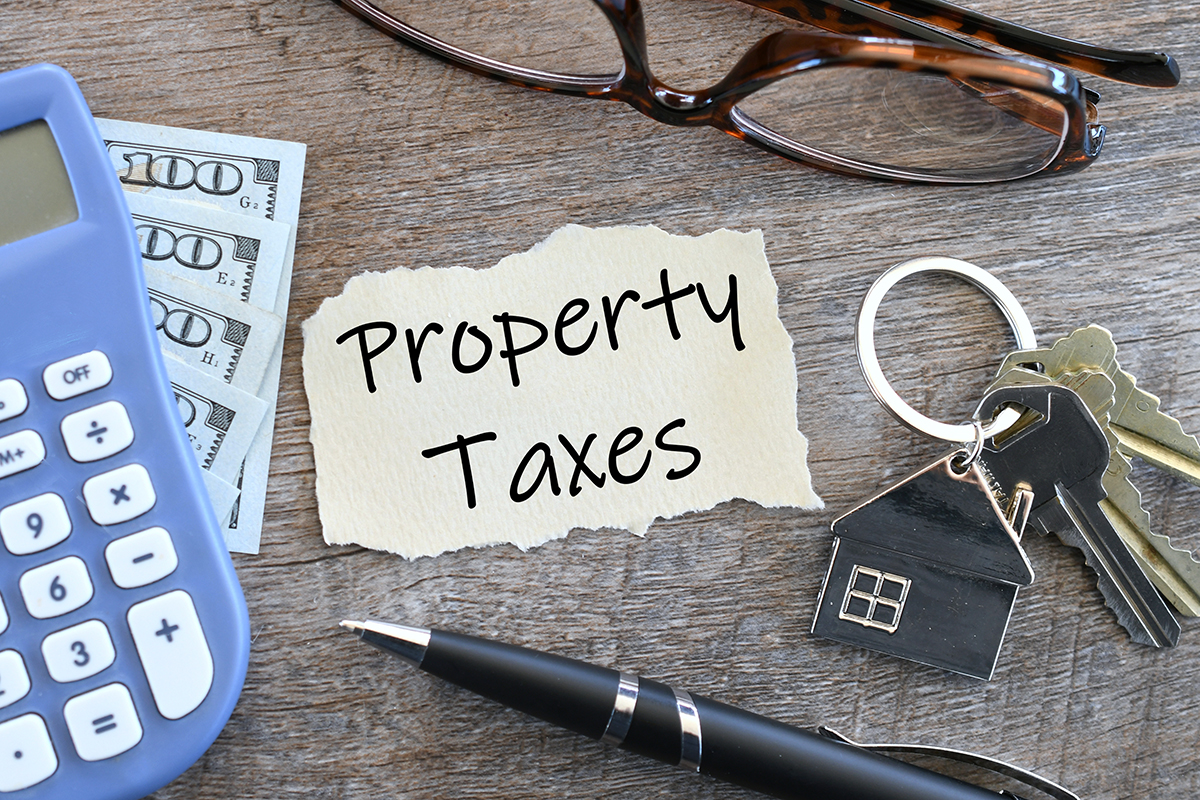Homestead Exemption
A homestead exemption is a law that helps protect a person’s home from being taken away to pay off debts. It also means a person might not have to pay as much in property taxes, and their home can stay protected if their husband or wife passes away.
The idea behind this law is to make sure families do not lose their homes when they are struggling with money. The law believes that keeping a home secure is more important than paying back certain debts.
Each state has its own rules about homestead exemptions. In most states, there is a limit on how much protection a person can get. States have no limits at all, which means the person’s entire home is safe from debt collectors.
Other states decide the limit based on the size of the home, the type of home, or the homeowner’s age. Some people, like those who are 65 or older, have a disability, or have served in the military, might get extra protection under this law.

What Kind of Property Counts as a Homestead?
A homestead is a house or other type of home that you own. It can also include up to 20 acres of land if you use the land for living.
If you live in a manufactured home (a home that was built somewhere else and moved to its location), you can still get a homestead exemption even if the land is rented, as long as you own the home itself.
There is another rule for manufactured homes. You need a Statement of Ownership and Location to qualify for a homestead. If you did not get this paper from the person who sold you the home, and you cannot find them, you can fill out an affidavit.
Who Can Get a Homestead Exemption?
In states like Texas, Nebraska, Georgia, or Alabama*, if you qualify for a general residence homestead exemption, you might also get these extra exemptions:
- Over 65 Exemptions: For example, Texas provides various exemptions to elderly—those 65 and above. If you are 65 or older in Texas, you can get this exemption. [1] If you pass away and your spouse is 55 or older, they can keep this exemption. Texas Tax Code Section 11.13(c) However, the laws for other states may vary.
- Disability Exemption: Another example is Alabama’s exemptions for Disability. So, if you have a disability that qualifies for Social Security Act benefits, you can get this exemption. This is only for homeowners, not their children. If you are 65 or older and have a disability, you can only pick one of these exemptions. [2]
- Veteran Exemption: Similarly, Nebraska is known for exemptions for veterans with a disability. Therefore, in the state, you, your spouse, and your survivors may qualify. This exemption also helps spouses and survivors of military members who died while on active duty. The amount of the exemption depends on the extent of the disability the veteran has from their service. [3]
*Note: Check your own state’s laws regarding the exemptions for age, disability, or veteran status. These are just examples of three states known for specific homestead exemption laws.
How Much Money Will I Save With a Homestead Exemption?
Local Residence Homestead Exemptions:
Some local governments give extra exemptions. These are based on a percentage of your home’s value.
The following are some of the examples in specific states:
- California: In California, the laws protect a set amount of home equity from creditors. The minimum is $300,000, and the maximum is $600,000. CCP 704.730 Assembly Bill No. 1885
- Colorado: In Colorado, the homestead exemption is 50% of the first $200,000. So, if a house is valued at $180,000, then the taxable value would be $90,000. Similarly, if a house is valued $500,000, then it will be taxed at $400,000. Colorado HB 25-1111
- Kentucky: The Bluegrass State is not too far behind either, as it provides disability and veteran benefits to qualified individuals. In such cases, they will have an exemption of 25%. So, a house worth $200,000 will effectively be taxed at $150,000. [4]
Elderly and Disabled Exemptions:
This depends on your specific state and the laws. Once again, in Texas, if you are 65 or older or have a disability, you get an extra $10,000 school tax exemption. Texas Tax Code Section 11.13(c) Some areas give even bigger exemptions for elderly and disabled homeowners.
One such example is New York City’s Senior Citizen Homeowners Exemption (SCHE), which provides a property tax reduction of 5% to 50% to people 65 and older. [5]
However, most states limit the benefits to either the elderly or disabled exemptions. So, if you qualify for both the elderly and disabled exemptions, you can only pick one in each tax district.
Veteran Homestead Exemptions:
If you are a veteran with a disability, your exemption depends on your disability rating from the military. It also depends on your state’s laws and how much exemption it provides.
For example, in Oregon, a veteran can get a $18,000 exemption. ORS 307.250–307.283 if any of these are true:
- They are 65 or older and have a disability rating of at least 10%.
- They are 40% or more disabled according to the VA or a licensed physician
- They have lost the use of one or more limbs.
- 100% disabled veterans get a full homestead exemption
When a disabled veteran passes away:
- Their spouse keeps the same exemption unless they remarry.
- If the spouse dies first, any children under 18 split the exemption.
- If a service member dies while on active duty, their surviving spouse gets a $5,000 exemption.

How to Apply for a Homestead Exemption
- Check If You Qualify: Every state has different rules for homestead exemptions. Some give bigger tax breaks to seniors, veterans, or people with disabilities. Check with your local tax office or your state’s website to see what rules apply to you.
- Get the Right Form: Most places have a homestead exemption application you need to fill out. You can usually find this form online or at your county tax office.
- Gather Your Papers: You will need some documents to prove you own and live in your home. This usually includes a driver’s license or ID with your home address, and maybe a property deed, mortgage papers, or utility bill. If you are applying for a special exemption, like for being a veteran or having a disability, you may need extra proof.
- Send in Your Application: Some states let you apply online, while others need you to mail or drop off your application at the tax office. Many places have a deadline, so check when you need to turn it in.
- Wait for Approval: If your exemption is approved, your property taxes will be lower. In most places, you do not need to apply again unless you move or your situation changes.
Can My Home's Appraisal Value Increase Too Much?
No, your home’s tax appraisal value cannot go up by more than 10% each year. However, if you improve your home (like adding a new room or fixing the roof), the value of those changes will be added on top of the 10% increase.
How Often to Apply For a Homestead Exemption
You only need to apply once for a homestead exemption. You do not have to apply again every year.
- The appraisal office will check at least once every five years to make sure you still qualify.
- If they decide you no longer qualify, you may apply for another exemption if you meet the requirements.
- If you move away and later return to your home as your main residence, you must apply for a new homestead exemption.
How To Qualify for a Homestead Exemption on an Inherited Home
If you inherit a home and it is your main residence, you can get 100% of the homestead exemption.
- Even if your name is not on the deed, you can still qualify by filling out an affidavit in the homestead exemption application form.
- You will need to submit other documents to prove you own the home.
When to Apply For a Homestead Exemption
You can apply anytime, but if you send your application before April 30, your exemption will be processed in time for your fall property tax bill.
- If you apply after April 30, the exemption can still be applied retroactively for up to one year after the tax delinquency date (usually February 1 of the next year).
- If you qualify for the over-65 or disabled person exemption, you can apply anytime after meeting the age or disability requirement. If you apply within a year of turning 65 or becoming disabled, the exemption will also be applied retroactively.
What Happens If I Do Not Pay My Property Taxes?
- If you do not pay, the county can put a lien on your home and foreclose on it—unless you qualify for a deferral.
- If your home is foreclosed, you have two years to buy it back.
- Your home cannot be taken away for property taxes that were not paid more than 20 years ago.
- If you have an over-65, disability, or disabled veteran exemption, you can defer your taxes until you pass away or move out. However, once this happens, all the unpaid taxes must be paid unless your heirs also qualify for a deferral.
- Interest on deferred taxes adds up at 8% per year.
- You can apply for a deferral through your county appraisal district, but first, check with your mortgage company to make sure it does not affect your loan.

Can I Get a Payment Plan to Pay My Property Taxes?
Yes, you might qualify for a payment plan.
- If you have a homestead exemption and are late on your taxes, the tax collector must allow you to pay in installments over 12 to 36 months if you ask for a plan.
- However, you cannot get a new plan if you already had one in the last 24 months.
- Interest on unpaid taxes is 12% per year.
- If you have an over-65, disability, or disabled veteran exemption, you can spread your tax payments over four installments during the year without penalties or interest.
- To use the installment plan, you must send a notice with your first payment, which must be made before February 1, April 1, June 1, and August 1.
Difference Between a Deferral and an Exemption
- An exemption lowers the amount of taxes you owe, but you still have to pay the rest.
- A deferral lets you delay paying taxes, but does not reduce how much you owe. Interest keeps adding up.
- Seniors over 65 and people with disabilities can defer property taxes until they move out or pass away.
Can a Married Couple Claim Two Homestead Exemptions?
No. A married couple can only claim one homestead exemption.
What happens to my homestead exemption if I move?
If you move away, your homestead exemption stays in place only if:
- You do not claim another home as your primary residence.
- You plan to return.
- You are away for less than two years, unless you are in the military or living in a nursing home or assisted living facility.

Renting Out Part of Your Home and Keeping Your Homestead Exemption
If you rent out part of your home or use part of it for a business, you can still keep your homestead exemption as long as:
- The home is still your main residence.
- If you move out, you still meet the rules above.
What Happens If Your Home Is Damaged or Destroyed in a Disaster?
If a disaster damages or destroys your home, your homestead exemption stays in place for up to two years from the time you start rebuilding.
- You must rebuild on the same property.
- After rebuilding, you must live there again for the exemption to continue.
Get a Free Consultation To Stop The Foreclosure On Your Home
If you live in Michigan and are trying to stop the foreclosure on your home, contact our Michigan foreclosure defense attorneys today for a free consultation.
FAQs
A homestead exemption is a law that protects a homeowner’s property from being taken to pay off debts and may lower property taxes.
Homeowners who live in their home as their primary residence and have a matching I.D. address can qualify, with extra exemptions available for seniors, disabled individuals, and veterans.
Yes, a manufactured home can qualify if the homeowner owns the home, even if they rent the land, and provides a Statement of Ownership and Location.
A general homestead exemption lowers the taxable value of a home by $100,000 for school taxes, with additional exemptions for local taxes, seniors, disabled homeowners, and veterans.
Sources:
[1] Texas Comptroller of Public Accounts. (n.d.). Property tax exemptions. https://comptroller.texas.gov/taxes/property-tax/exemptions/
[2] Homestead exemptions – Alabama Department of Revenue. (n.d.-b). Alabama Department of Revenue. https://www.revenue.alabama.gov/property-tax/homestead-exemptions/
[3] Nebraska Department of Revenue. (2025). Nebraska homestead exemption information guide. In Nebraska Homestead Exemption Information Guide (pp. 1–3). https://revenue.nebraska.gov/sites/default/files/doc/pad/homestead/Homestead%20Exemption%20Information%20Guide.pdf
[4] Homestead exemption – Kentucky Department of Revenue. (n.d.). https://revenue.ky.gov/Property/Residential-Farm-Commercial-Property/Pages/Homestead-Exemption.aspx
[5] Deadline to upgrade to the enhanced STAR property tax exemption is March 1. (2025, February 26). https://www.tax.ny.gov/press/rel/2025/enhancedstar022625.htm




